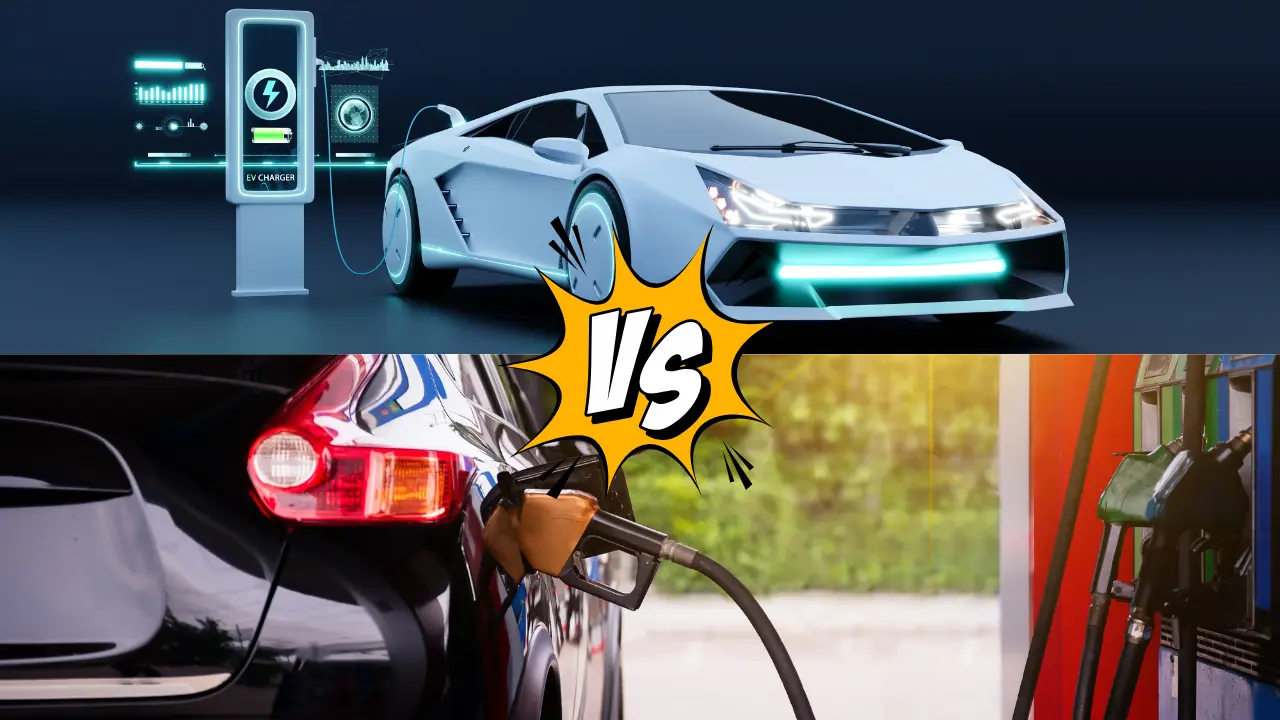In 2025, the automobile world is going through a major transformation. With rising fuel prices, increasing focus on climate change, and the push for cleaner energy by governments, electric vehicles (EVs) are gaining serious traction. At the same time, petrol cars still hold their place in the market due to their reliability, affordability, and convenience. If you are planning to buy a car this year, the choice between electric and petrol can be tricky. This detailed comparison will help you make the right decision.
Choosing between electric and petrol depends on several factors like your daily usage, access to charging stations, driving distance, and budget. Let’s explore the major differences and see which one fits your needs better in 2025.
Quick Comparison Table
| Feature | Electric Cars | Petrol Cars |
|---|---|---|
| Running Cost | Low (₹1–1.5/km) | High (₹6–10/km) |
| Maintenance | Very Low | High |
| Range | 250–500 km | 600–800 km |
| Refueling Time | 45 mins to several hours | 5 minutes |
| Price | Higher upfront | Lower upfront |
| Emissions | Zero tailpipe | High CO₂ output |
| Government Benefits | Available | Mostly none |
Advantages of Electric Cars in 2025
Lower fuel cost compared to petrol
Minimal maintenance due to fewer moving parts
Zero tailpipe emissions, environment-friendly
Quiet and smooth driving experience
Government incentives and tax rebates
No need for engine oil changes, clutch replacements, or frequent servicing
Disadvantages of Electric Cars
Higher initial cost than petrol variants
Charging takes more time than fueling
Charging infrastructure is still developing in many areas
Range anxiety for long trips in some models
Advantages of Petrol Cars in 2025
Lower purchase cost for entry and mid-range models
Easy refueling at thousands of petrol stations
More variety across all price segments
Longer range per full tank
Better for long-distance or highway travel
Disadvantages of Petrol Cars
High running cost due to rising fuel prices
More maintenance over time
Pollutes the environment through CO₂ emissions
No future-proof incentives or benefits
Cost of Ownership Comparison (5 Years)
| Category | Electric Car | Petrol Car |
|---|---|---|
| On-Road Price | ₹12 lakh | ₹9 lakh |
| Fuel Cost (30,000 km/year) | ₹45,000/year | ₹1,80,000/year |
| Maintenance (5 Years) | ₹15,000 | ₹60,000 |
| Govt Subsidy | ₹1.5 lakh approx | Not applicable |
| Total Estimated Cost | ₹13.5 lakh | ₹18.6 lakh |
Estimated based on popular models like Tata Nexon EV vs Hyundai i20 Petrol
Who Should Choose Electric Cars in 2025?
If your daily commute is under 100 km and mostly within the city
If you have access to home or workplace charging
If you want to save on fuel and maintenance costs
If you care about reducing your carbon footprint
If you plan to keep the car for more than 5 years
Who Should Choose Petrol Cars in 2025?
If you travel long distances regularly
If you live in areas with no or poor charging infrastructure
If you have a tight upfront budget
If you need instant refueling on highways
If you’re planning to resell within a few years
Final Thoughts
Electric cars are not just a trend anymore – in 2025, they’re a smart, efficient, and eco-friendly option. If your city or lifestyle supports EVs, they offer massive long-term savings and cleaner mobility. Petrol cars are still reliable and convenient, especially for long drives and rural areas, but they may become less practical over time as EV infrastructure improves and government policies shift.
If you’re buying your first or next car in 2025, ask yourself one question – are you ready for the future, or do you need convenience right now? Either way, this guide should help you make an informed choice.

